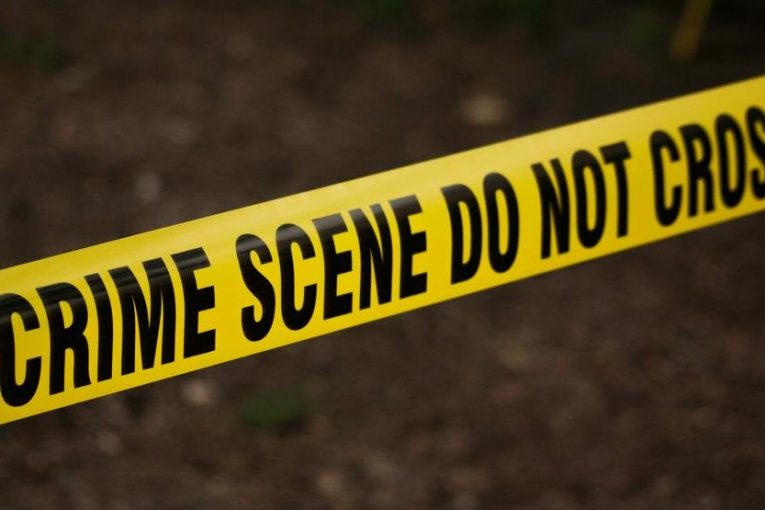

By Darling Gonzalez
SAN FRANCISCO, CA – Robbery has decreased 5.4 percent between 2020 and 2021 in San Francisco, but residents still remain on high alert, according to the San Francisco Crime Data Dashboard.
Many residents in the SF area have resorted to taking classes such as Master Jeff Chow’s Tat Wong Kung Fu Academy class, Annie Vainshtein reports in her article, “‘People are freaking out’: From martial arts to high-end locks, S.F. residents are investing in self-protection.”
Vainshtein reports that lessons and classes taught from instructors like Chow are in higher demand as more viral videos of robberies, burglaries, and other crimes are being circulated on the internet.
Businesses that sell security equipment and other self-defense operations are also seeing an upsurge in sales and business overall.
Vainshtein says that along with the high media coverage of these crimes “…the city has been consumed by the war of words over progressive District Attorney Chesa Boudin and his efforts to reduce incarceration in favor of treatment and rehabilitation.”
Yet Radley Balko’s article in The Washington Post, “The bogus backlash against progressive prosecutors,” explains a different story about DA Boudin’s progress with crime.
Balko explains, “Boudin’s charging rates for both violent and property crimes are similar to that of his predecessor, according to Mission Local. And as Boudin points out, San Francisco police made arrests in only about 10 percent of burglaries last year. A DA can’t file charges if the police don’t make arrests.”
And as previously mentioned, the high need for security has also been driven by personal experiences that have affected people across the  country.
country.
In Vainshtein’s article, Dorothy Wong, 35, mentioned her own reason for joining the Tat Wong Academy with regard to the recent attacks against the Asian American and Pacific Islander communities shown on viral videos over the summer.
“The hate, especially towards elderly, is super concerning,” she said, adding that she lives with her 99-year-old grandmother.
“So part of that was me trying to be prepared in case I needed to defend my family,” Wong explains.
According to Vainshtein’s research, “the per-capita rate of reported violent crimes in San Francisco — murders, robberies, assaults and rapes — decreased from 2017 to 2020, [as demonstrated by] data from the city’s police force.”
Although many crimes have decreased in the past four years, SF residents have not only started taking self-defense classes, but also have turned to technology and security systems to protect themselves.
Vainshtein describes how many locksmiths and home security companies have seen a persistent demand for higher-grade protection to deter thieves from their homes and properties.
Business associates like Nestor Guardado, shop manager at Lock World, has estimated that he has seen somewhere between 25 percent to 40 percent increase in business over the last year.
Vainshtein reports, “Paul Singh, the Northern California general manager for the security company ADT, said inquiries and business among San Francisco residents have doubled since the pandemic, a change that has now been made challenging because of supply issues, shipping delays, and chip shortages.”
“We just blew up, everybody wanted a camera,” he said.
Richard Winton’s article in the LA Times, “Rise in California homicides echoes the nation, but state fares better in violent crime, FBI stats show,” includes the perspective of Richard Rosenfeld, a criminologist at the University of Missouri, St. Louis, on the universal increase of crime in both small and large communities.
Rosenfield explains that more universal explanations for the widespread increase in crime could include the effects of the coronavirus pandemic on society and the ignition of widespread unrest after the killing of George Floyd by Minneapolis Police in 2020.
Nonetheless, Winton and Vainshtein articles exhibit the public views of crime and the effects on communities like San Francisco.


OK, got it, robbery has decreased but people are freaking out and taking actions based on biased media coverage.
OK, got it, but when it comes to hate crimes, it’s not about rates it’s about ‘personal experiences‘, so it’s OK if people take action on those perceptions generated in the media.
Yet, what’s really concerning is that as people perceive that prosecutors are not prosecuting and police are being defunded, they need to buy more guns to defend themselves. See below news clip from Seattle (buying guns part beyond initial car/child theft story):
Amid crime surge in Seattle, some take steps to defend themselves
https://www.youtube.com/watch?v=RM7Y9NTDfiY
Part of the reason that they’re “freaking out” is because we’re now able to actually see what’s occurring more easily, as we can with instances of police misconduct.
Turns out that some bad stuff happens out there.
Personally, I appreciate the increased use of cameras (cell phones, security cameras, etc.). People are pretty quick to take out their cell phones when they see something occurring, even if they’re not willing to get involved beyond that.
And when they try to do so to “cancel” someone, it seems to me that the one holding the camera often looks worse than the one that they’re filming. Even if their respective employers don’t see it that way (so far).